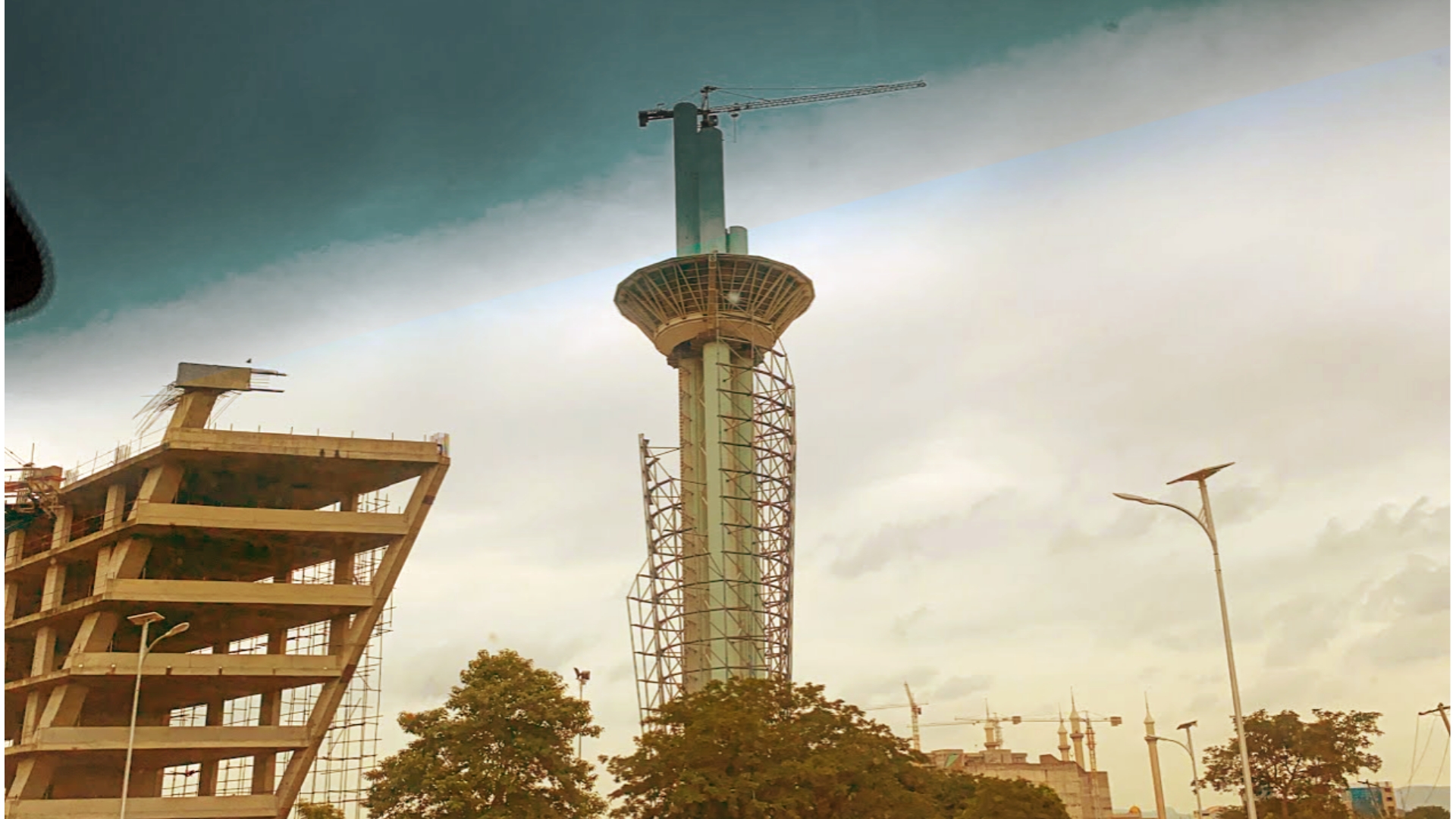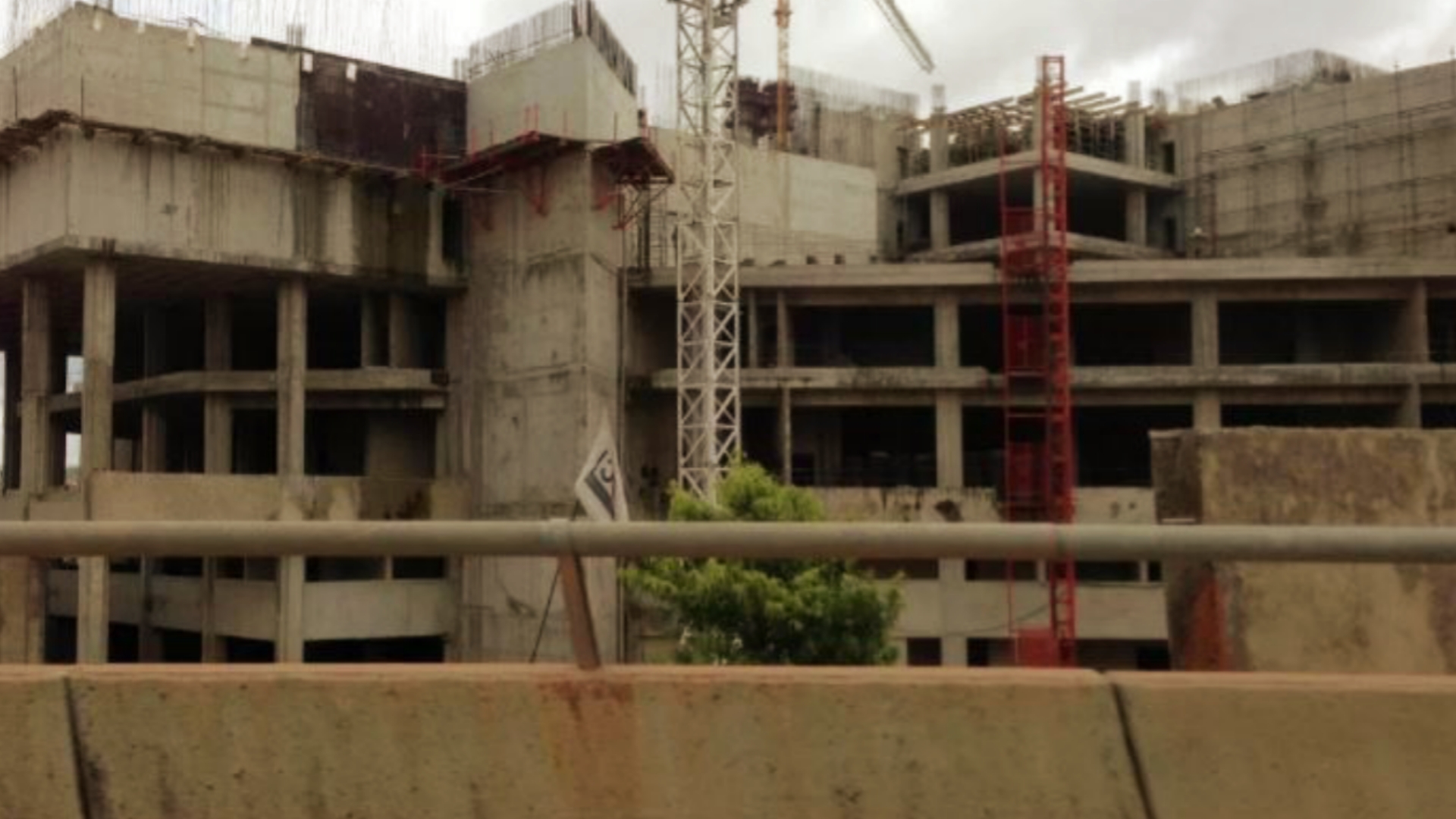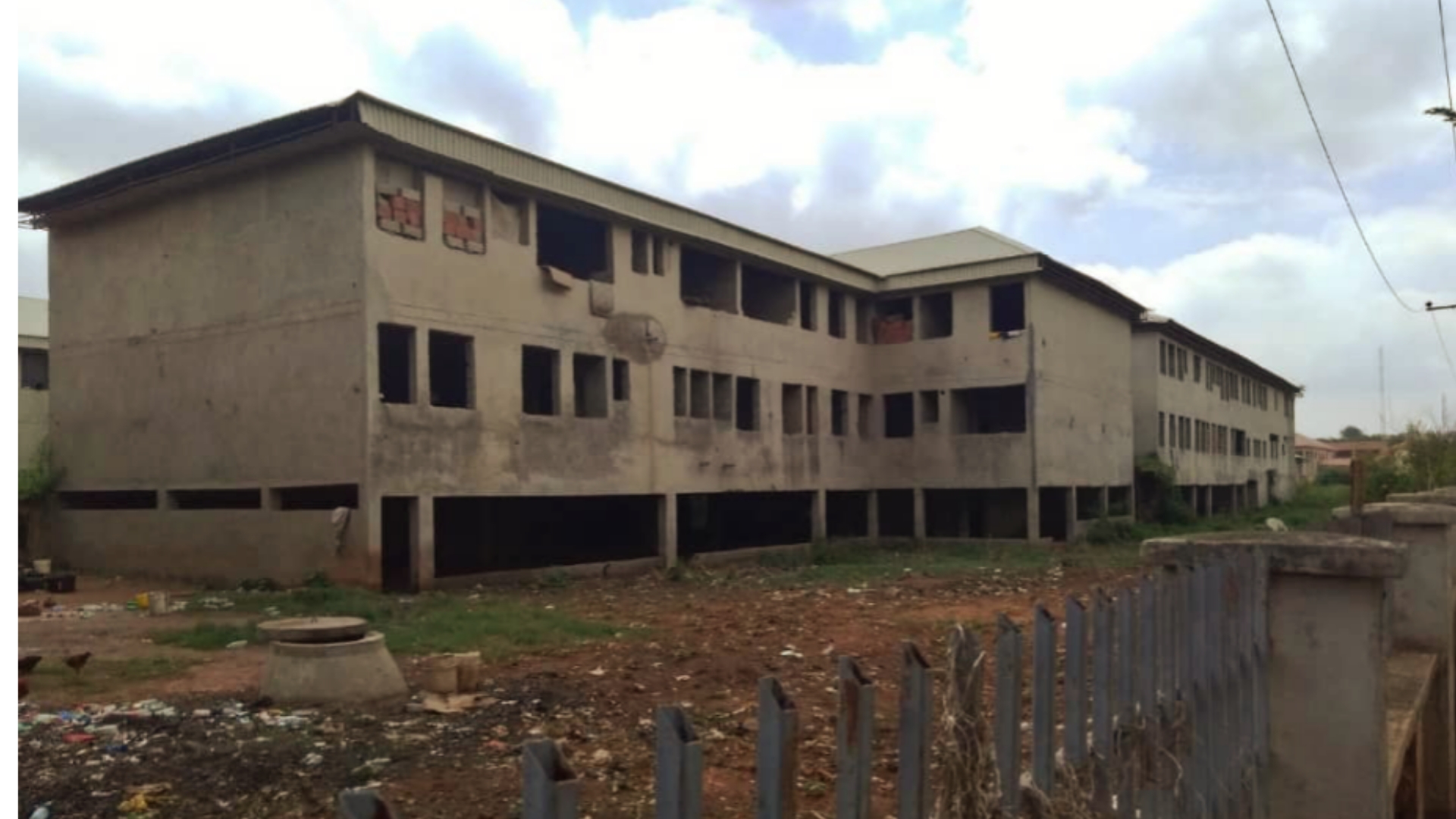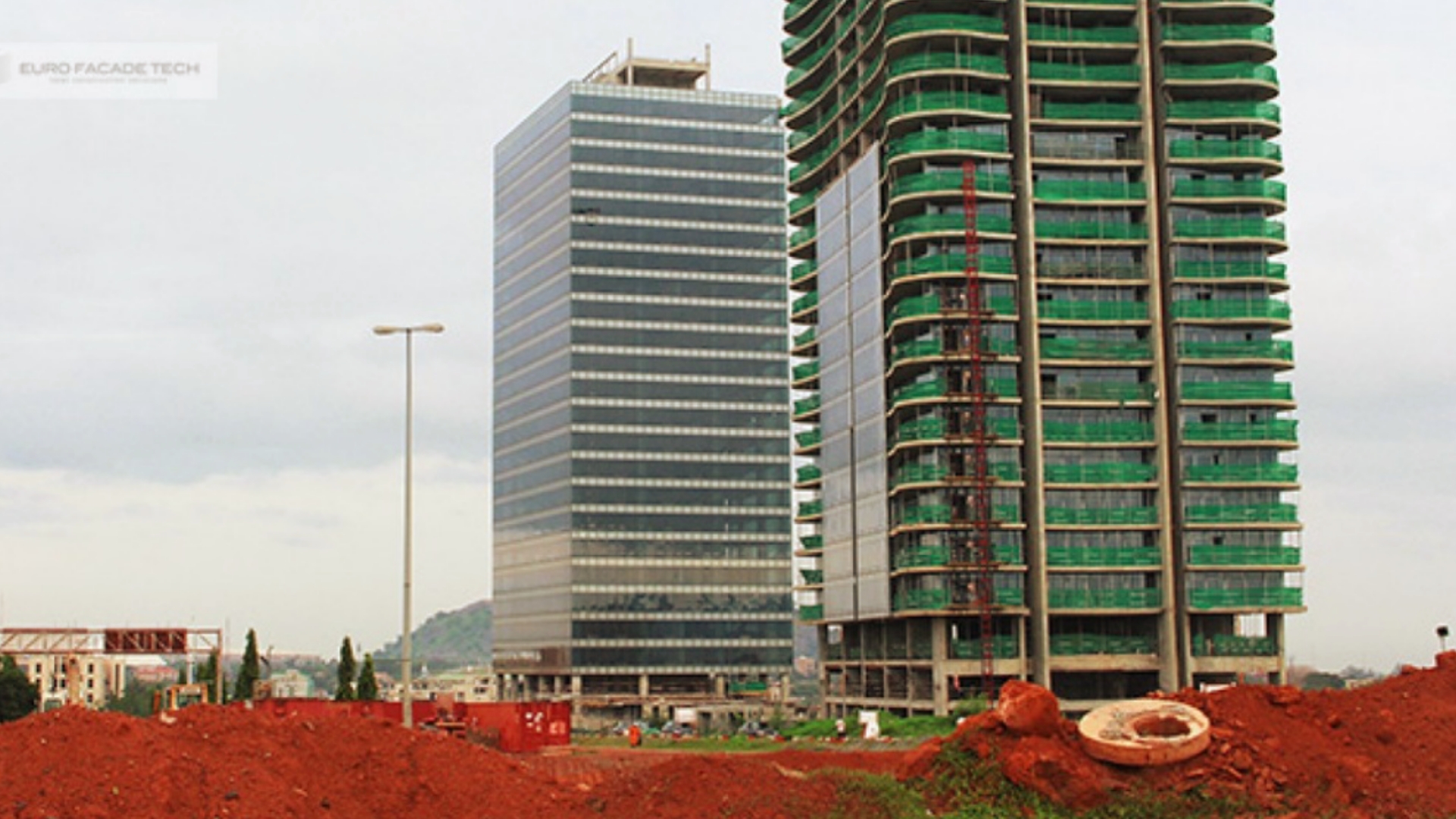There are at least five mega projects, worth nearly a trillion naira across Abuja, Nigeria’s capital city which have been under construction for over 15 years and still counting.
21st CENTURY CHRONICLE investigations have identified these multi-billion beautiful projects that are either abandoned, or with works ongoing at snail pace. They are the National Library of Nigeria, Millennium Tower and Cultural Centre, Utako General Hospital, World Trade Centre, and Abuja City Centre.
Millennium Tower project lingers 21 years into the millennium
Despite being called the Millennium Tower and Cultural Centre, the project located in Abuja’s Central Business District was conceptualised in 2005, five years into the new millennium, under the Olusegun Obasanjo-led administration, and projected to be completed in 2011.

The tower was designed by Italian architect Manfredi Nicoletti; and its construction awarded to another Italian construction firm, Salini at $333 million (N53 billion). It was planned to be to Abuja what other major monuments across the world such as the London Bridge, the Eiffel Tower in Paris, and the Statue of Liberty in the United States, are to those countries.
Standing at 170 metres (560 ft), the tower was expected to be Nigeria’s tallest building when completed along with an eight-storey, low rise, pyramid shaped Cultural Centre. Construction for the tower started in 2008 and was topped out in 2014 whilst the cultural centre is still under construction. An underground arcade links the Millennium Tower and the Cultural Centre which are severed by a main road, while a disc-shaped section housing two floors include a restaurant where visitors will be able to enjoy spectacular views of the city below while they dine.
A lot of people considered the plan outlandish at the time, but that was not enough to stop the government.
As at 2017, construction work on the project was only 38 percent completed, even as there were no budgetary provisions for the project in 2016 and 2017.
In 2019, the contracting firm, during a visit by the FCT Minister, Muhammad Bello, to the site, revealed that it had submitted extension of time claims to the tune of N4.9 billion for 36 months to the Federal Capital Development Authority (FCDA) and that an additional sum of $500 million (N38.2 billion) would be required for the project to be completed.
In the 2021 budget, N1 billion was allocated for design and construction of the project.
15 years not enough to build a National Library
Sixty one years after Nigeria gained independence, the country is yet to get its own version of the Bibliotheca Alexandrina, Library of Congress or Shanghai Library.

Contract for the construction of the National Library of Nigeria was awarded in 2006 at N8 billion and reviewed upward to N18 billion in 2013.
Work on the project, however, stopped at the end of 2013, due to poor-funding.
At the inception of the President Muhammadu Buhari administration, the contractor submitted a new bill of N78 billion to complete the project and a committee was set up to evaluate it.
In 2019, the committee proposed N50 billion for the completion of the project.
The project, which the Senate once described as a national embarrassment, remains uncompleted.
In the 2021 budget, N200 million was allocated for construction of the library headquarters out of the N1,692,974,058 capital budget of the National Library of Nigeria.
220-bed Utako General Hospital sick for 10 years
Construction of the 220-bed Utako General Hospital started in 2011.

The contract for the construction and equipping of the hospital was awarded to M/S PPC Medical Systems at the cost of over N4.3 billion.
Ten years later, not much has been achieved as the contract site has been abandoned by the contractor and taken over by miscreants, while residents of neighbouring houses have turned it into a refuse dump site.
Though the various buildings at the site are at various stages of completion, not much progress has been made especially since 2014 when a part of the building under construction collapsed, necessitating a stop work order and setting up of a ministerial investigation panel headed by then permanent secretary, John Chukwu.
According to reports, as at 2016, approximately N2.222 billion of the N4.263 cost of the project was said to have been disbursed on the project which is still far from completion.
In 2019, the then secretary, FCT Health and Human Services Secretariat, Adamu Bappah, assured that the FCTA was poised to sort out all pending matters on the project.
N700 billion Abuja ‘ghost’ City Centre
In 2015, the federal government gave approval to Messrs. Chikason Group and partners, Eagle Hills, Abu Dhabi, to immediately commence work on the N700 billion Abuja City Centre project, after the architectural design was seen and vetted by the government.
Sitting on 17 hectares in Abuja’s city centre, the project was designed to include four international hotels, residential houses, offices and shops as well as condominium. The project was expected to be completed within a period of between 60-120 months;
Then FCT minister, Senator Bala Mohammed, revealed that the Centre would be a mixed-use development that has the capacity to generate about 10,000 jobs with its multiplier effect on the economy of the entire country.
“The land premium as well as the development control charges accruable to the FCT Administration would be used as its equity contribution to the project.”
“In addition, the investors would construct a National Mall at the cost of 40million US Dollars at no cost to the FCT Administration,” he said.
The status of the project remains unknown, six years later.
A decade-long World Trade Centre
The World Trade Centre (WTC) complex under construction in the Central Business District of Abuja, was conceptualised to be the largest mixed-use development on the West African subcontinent.

Located on a land size of over 6,000 hectares in the Central Business District, the over $1 billion (N152 billion) project was launched in 2011 by former President Goodluck Jonathan with 2013 as target completion date.
It is being developed by The churchgate Group, a Nigerian real estate company, with Woods Bagot as the architect.
The projected completion date could not be met and was attributed to challenges in design and development.
There are seven skyscrapers planned for the site, two of which have already been topped out, with the others either under construction or at various stages of development. At 110 metres (361ft), the 24-floor WTC Tower 1, which topped out in 2015 is said to be the tallest residential building in Nigeria, while WTC Tower 2 is the tallest building in Abuja, standing at 120 metres (394ft).
Why public projects linger for years or abandoned – Expert
Consulting Architect, Lawrence Utsaha, said the slow pace of construction or outright abandonment of projects could be attributed to change of priorities of the sponsors/funding agency – including the government.
He pointed out that many times, the dream for the project is not deep seated so when there is a change in the headship of the organisation, some priorities are lost.
He said another reason could be drastic changes in cost, which may be due to variation and/or fluctuation, which in some cases, affects the potential return on investment.
“Again, some projects are conceived to tap into potential opportunities – like a blossoming economy or potential boom. When events affect these potentials, it affects the projects. For instance, the heightened level of insecurity in Abuja will discourage international trade and investment, affecting the potentials derivable from, eg, a World Trade Centre,” he said.
To solve the problem, Utsaha advised that in the case of public projects, the funding must be secured and guaranteed and conditions of contract should be such that allow for reasonable inflation and that public-Private Partnership (PPP) should drive most government interest projects to protect against the consequences of change in government.
“Recall how GMB, in 1984, stopped the LAGOS METRO PROJECT, only because he had the fiat as military head.
“Then conceptualisation of projects should be holistic and exhaustively analysed before commencement. Sometimes, unforeseen events also affect the project in future,” he added.
Projects not abandoned – FCT official
Senior Special Adviser on Strategic Communication to the FCT Minister, Abubakar Sani, said the Millenium Tower and Utako General Hospital were not abandoned, but ongoing projects.
On the hospital, he said “some issues with the contractor that have stalled the project are being resolved.”
On the Millennium Tower, he said the administration was open to partnering with private developers, through Public-Private Partnership (PPP) to complete the project.









